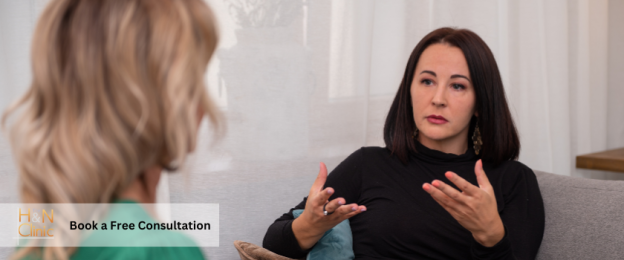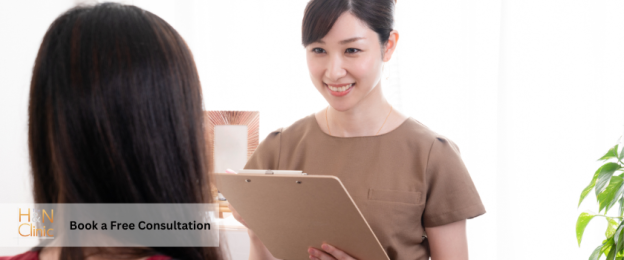Eating disorders can manifest in various forms and present a range of symptoms. The three most commonly recognised eating disorders are anorexia, bulimia, and binge eating disorder.
Individuals who have anorexia often engage in extreme food restriction, sometimes avoiding food for days due to an intense fear of gaining weight. This behaviour can lead to severe health complications, as the body lacks the essential nutrients to function correctly. Anorexia can be life-threatening, making it critical to seek **therapy** as soon as possible. Those struggling with this disorder frequently have a distorted perception of their bodies when they look in the mirror. While it may seem that the issue is solely about body image, the deeper problem often lies in their desire for control. Many individuals with anorexia are on a relentless quest for perfection, yet they rarely feel they achieve it.
**Hypnotherapy** can help reduce the anxiety that stems from the immense pressure individuals with anorexia often place on themselves. It also provides a means to explore and address any lingering negative emotions tied to past experiences that may have contributed to the development of the disorder. These sessions are available **online via Zoom**, and in-person in **Hertfordshire**, **North London**, **St Albans**, and **Hemel Hempstead** 🧠💬.
**NLP** and **Hypnotherapy** offer practical ways to improve self-esteem, mainly when it is low. By focusing on solutions that address the emotional needs of someone with anorexia, rather than adding stress by fixating on food and weight gain, we can create a more supportive environment. This approach is especially beneficial in the early stages, as it aligns with the individual’s focus and fosters internal motivation to heal.
Bulimia presents a distinct set of symptoms that set it apart from other eating disorders. Those with bulimia often consume large quantities of food in a short period, which may follow periods of starvation. After these binge episodes, they typically induce vomiting or use laxatives to eliminate the food. This cycle can occur sporadically, ranging from every few weeks to daily, and many individuals may binge eat in secret.
Like anorexia, bulimia is closely linked to self-esteem issues and various emotional challenges. However, despite being more common than anorexia, bulimia often goes unnoticed. This is mainly because individuals with bulimia may appear to have a normal body weight or be slightly overweight. Nevertheless, the risks are just as serious, and the impact on overall health can be profoundly damaging.
**Hypnotherapy** and **NLP** provide valuable tools for addressing the emotional hurdles faced by individuals with bulimia. Through hypnotic suggestions, fostering more positive behaviours while exploring past relationships and emotional experiences is possible. Additionally, hypnotic techniques can help individuals become more attuned to their body’s natural fullness signals, reducing the urge to binge.
Eating disorders do not always result in significant weight loss; in fact, obesity is becoming an increasingly urgent issue. Projections suggest that within a few years, one-third of the UK population could be classified as obese. While unhealthy eating habits are often associated with obesity, binge eating is another major contributing factor. This behaviour involves consuming large amounts of food throughout the day or eating even when already full. The long-term health consequences of these patterns are severe, including risks of heart disease, diabetes, and high blood pressure.
Negative emotions often trigger binge eating. People risk establishing a harmful cycle when they turn to food out of boredom or for comfort. This cycle can lead to a reliance on food whenever boredom or emotional distress arises. However, **Hypnotherapy**, **NLP**, and consistent **therapy** can help redirect the mind towards healthier ways to address these needs. By using hypnotic suggestions, individuals can develop motivation to meet their needs constructively. Consistent practice of these suggestions can form new, healthier habits and a more peaceful relationship with food 🍽️💛.
Whether you’re based in **North London**, **Hemel Hempstead**, **St Albans**, **Hertfordshire**, or prefer the convenience of **online therapy via Zoom**, there are supportive and effective options available to help you on your journey to recovery.
By Gemma Bailey






